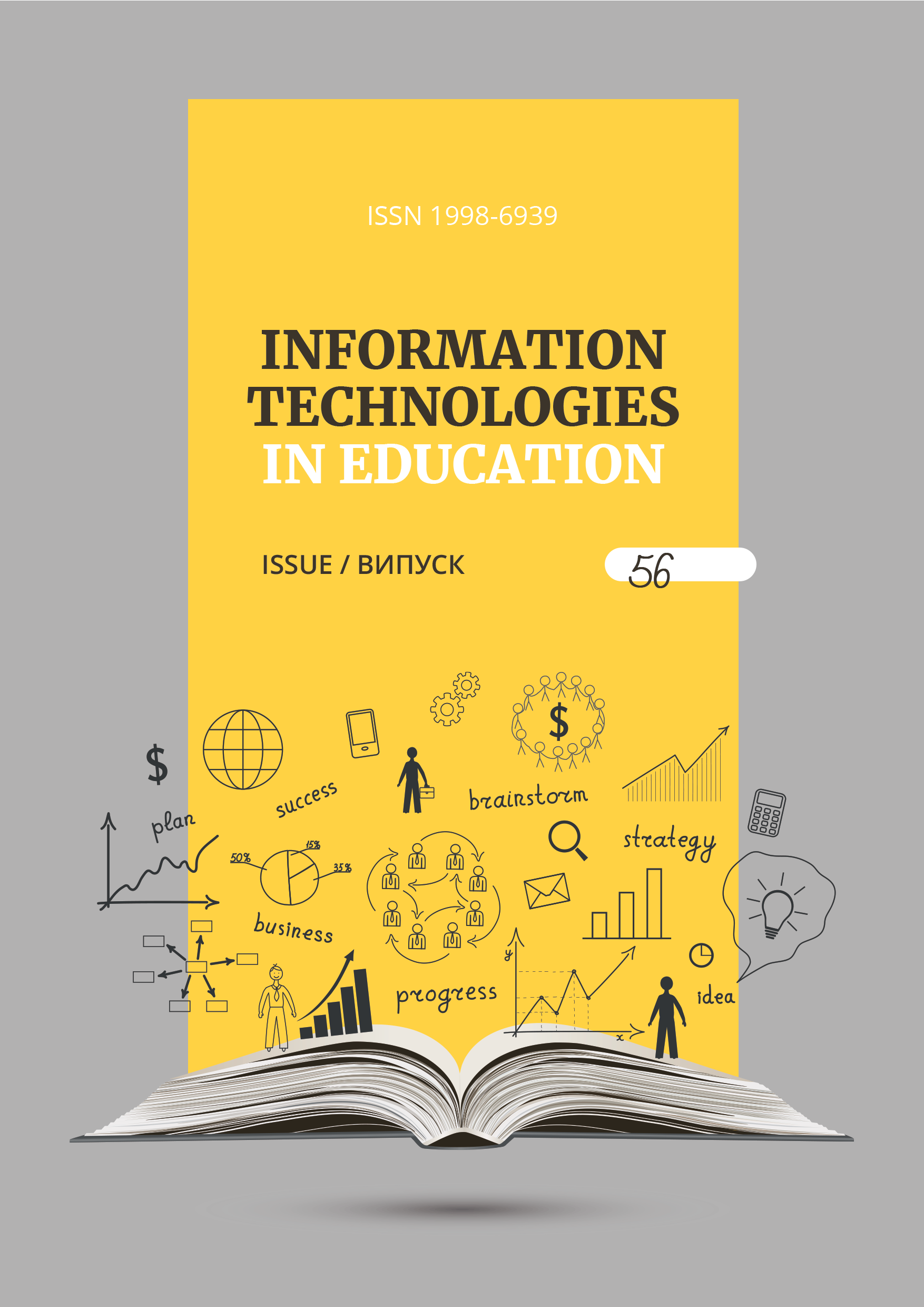ОГЛЯД ВРАЗЛИВОСТЕЙ СМАРТКОНТРАКТІВ НАПИСАНИХ НА SOLIDITY
DOI:
https://doi.org/10.14308/ite000787Ключові слова:
smart contract, Solidity, vulnerabilities, Ethereum, cybersecurity, cyberattack, blockchain, Decentralized Finance (DeFi)Анотація
Зростаючий інтерес до технологій блокчейн і смарт-контрактів привернув увагу до проблем безпеки, пов'язаних з цими інноваційними рішеннями. Смарт-контракти, написані мовою програмування Solidity і виконані на платформі Ethereum, пропонують нові можливості для автоматизації юридичних і фінансових транзакцій. Однак вони також створюють ризики, пов'язані з безпекою коду та даних.
У статті розглядаються фундаментальні принципи смарт-контрактів, з акцентом на мові Solidity та вразливості, які зазвичай виникають під час розробки. Автори надають стислий огляд академічних досліджень у сфері безпеки смарт-контрактів, підкреслюючи важливість кожної роботи. Цей огляд дає читачам розуміння поточного стану досліджень у сфері кібербезпеки смарт-контрактів і підкреслює важливість підвищення безпеки технологій блокчейн.
З огляду на зростаючу складність і розширення сфер застосування технологій блокчейн, вивчення вразливостей смарт-контрактів має вирішальне значення. Це дослідження підкреслює важливість проведення систематичного аналізу кібератак, включаючи детальне вивчення кожного типу і випадку атаки. Такий підхід може запобігти потенційним вразливостям та ефективно мінімізувати ризики атак. Такий підхід є вкрай важливим для забезпечення подальшого розвитку та популяризації технології блокчейн.
У статті наведено приклади, які ілюструють реальні випадки вразливостей смарт-контрактів та обговорюються наслідки таких вразливостей. Аналіз цих прикладів дає розуміння важливості ретельної розробки та аудиту коду, а також важливості постійного навчання та тренінгів з кібербезпеки для розробників. Надано рекомендації щодо подальших досліджень та окреслено вектори майбутньої роботи.
Цей документ може зацікавити осіб, які займаються розробкою смарт-контрактів, дослідженнями в галузі блокчейну та кібербезпеки, а також тих, хто цікавиться технологією блокчейн.
Завантаження
Показники метрики:
Посилання
2. Ethereum Foundation. (2023, December 15). Ethereum. Retrieved from https://ethereum.org/en/
3. Ethereum Foundation. (2023, December 15). ERC-20 Token Standard. Retrieved from https://ethereum.org/en/developers/docs/standards/tokens/erc-20/
4. Smart Contract Weakness Classification and Test Cases (SWC Registry). (2023, December 15). Retrieved from https://swcregistry.io/
5. Zipfel, K. (2023, December 15). Smart Contract Vulnerabilities. Retrieved from https://github.com/kadenzipfel/smart-contract-vulnerabilities/tree/master/vulnerabilities
6. Mehar, M., Shier, C., Giambattista, A., Gong, E., Fletcher, G., Sanayhie, R., Kim, H. M., & Laskowski, M. (2017). Understanding a Revolutionary and Flawed Grand Experiment in Blockchain: The DAO Attack. Retrieved from https://dx.doi.org/10.2139/ssrn.3014782
7. Lai, E., & Luo, W. (2020). Static Analysis of Integer Overflow of Smart Contracts in Ethereum. Retrieved from https://dx.doi.org/10.1145/3377644.3377650
8. OpenZeppelin. (2023, December 15). SafeMath. Retrieved from https://docs.openzeppelin.com/contracts/2.x/api/math
9. Zhang, X., Li, Z., Xu, X., Zhao, X., & Kang, Q. (2023). Deep learning-based solution for smart contract vulnerabilities detection. Scientific Reports, 13, 4241. https://doi.org/10.1038/s41598-023-47219-0
10. Li, C., Nie, S., Cao, Y., Yu, Y., & Hu, Z. (2020). Trace-Based Dynamic Gas Estimation of Loops in Smart Contracts. Retrieved from https://dx.doi.org/10.1109/OJCS.2020.3039991
11. Nassirzadeh, B., Sun, H., Banescu, S., & Ganesh, V. (2021). Gas Gauge: A Security Analysis Tool for Smart Contract Out-of-Gas Vulnerabilities. Retrieved from https://dx.doi.org/10.1007/978-3-031-18679-0_9
12. Fang, Y., Wu, D., Yi, X., Wang, S., Chen, Y., Chen, M., Liu, Y., & Jiang, L. (2023). Beyond “Protected” and “Private”: An Empirical Security Analysis of Custom Function Modifiers in Smart Contracts. Retrieved from https://dx.doi.org/10.1145/3597926.3598125
13. CertiK. (2022, September 28). MEV Bot OxBAD... Incident Analysis. CertiK Blog. https://www.certik.com/blog/mev-bot-oxbad-incident-analysis
14. Wang, C., Jiang, H., Wang, Y., Huang, Q., & Zuo, Z. (2023). Research on smart contract vulnerability detection method based on domain features of solidity contracts and attention mechanism. Retrieved from https://dx.doi.org/10.3233/jifs-224489
15. Ethereum Foundation. (2023, December 15). Ethereum Virtual Machine (EVM). Retrieved from https://ethereum.org/en/developers/docs/evm/
16. Xu, Y., Hu, G., You, L., & Cao, C. (2021). A Novel Machine Learning-Based Analysis Model for Smart Contract Vulnerability. Retrieved from https://dx.doi.org/10.1155/2021/5798033
17. Akça, S., Rajan, A., & Peng, C. (2019). SolAnalyser: A Framework for Analysing and Testing Smart Contracts. Retrieved from https://dx.doi.org/10.1109/APSEC48747.2019.00071
18. ConsenSys. (2023, December 15). Timestamp Dependence. In Ethereum Smart Contract Best Practices. Retrieved from https://consensys.github.io/smart-contract-best-practices/development-recommendations/solidity-specific/timestamp-dependence/
19. Franciscu, S. Y., Ruggahakotuwa, R. K., Samarawickrama, S., & Lahiru, J. (2023). GRIFFIN: Enhancing the security of smart contracts. Retrieved from https://dx.doi.org/10.17352/tcsit.000071
20. Ivanov, N., Lou, J., Chen, T., Li, J., & Yan, Q. (2021). Targeting the Weakest Link: Social Engineering Attacks in Ethereum Smart Contracts. Retrieved from https://dx.doi.org/10.1145/3433210.3453085
21. Fariz, T. (2021, September 5). Solidity Hacks/Vulnerabilities part 2. DEV Community. https://dev.to/fariztiger/solidity-hacks-vulnerabilities-part-2-2bpg
22. Crypto Panda. (2018, August 22). The $3 Million Winner of Fomo3D Is Still Playing to Win. Longhash. Retrieved from https://www.longhash.com/news/the-3-million-winner-of-fomo3d-is-still-playing-to-win
23. Nikolić, I., Kolluri, A., Sergey, I., Saxena, P., & Hobor, A. (2018). Finding The Greedy, Prodigal, and Suicidal Contracts at Scale. arXiv preprint arXiv:1802.06038. Retrieved from https://arxiv.org/pdf/1802.06038.pdf
24. Solidity Team. (2023, December 15). Known Attacks. In Ethereum Contract Security Techniques and Tips. Retrieved from https://ethereum-contract-security-techniques-and-tips.readthedocs.io/en/latest/known_attacks/
25. Solidity by Example. (2023, December 15). Front-Running. In Solidity by Example. Retrieved from https://solidity-by-example.org/hacks/front-running/
26. Cybernews. (2021, October 4). Flash Boys 2.0: Front-runners draining $280 million per month from crypto transactions. Cybernews. Retrieved from https://cybernews.com/crypto/flash-boys-2-0-front-runners-draining-280-million-per-month-from-crypto-transactions/
27. Neptune Mutual. (2023, December 15). Solidity Front-Running Attack. В Neptune Mutual. Retrieved from https://neptunemutual.com/blog/solidity-front-running-attack/
28. Yang, Z., & Lei, H. (2018). Lolisa: Formal Syntax and Semantics for a Subset of the Solidity Programming Language. arXiv preprint arXiv:1803.09885. https://arxiv.org/abs/1803.09885
29. Staderini, M., Pataricza, A., & Bondavalli, A. (2023, December 15). Security Evaluation and Improvement of Solidity Smart Contracts. SSRN Electronic Journal. https://doi.org/10.2139/ssrn.4038087
30. Zaazaa, O., & El Bakkali, H. (2023). A systematic literature review of undiscovered vulnerabilities and tools in smart contract technology. Journal of Intelligent Systems. https://doi.org/10.1515/jisys-2023-0038
31. Soud, M., Qasse, I. A., Liebel, G., & Hamdaqa, M. (2022). AutoMESC: Automatic Framework for Mining and Classifying Ethereum Smart Contract Vulnerabilities and Their Fixes. Retrieved from https://dx.doi.org/10.48550/arXiv.2212.10660
32. Perez, D., & Livshits, B. (2023, December 15). Smart Contract Vulnerabilities: Vulnerable Does Not Imply Exploited. Retrieved from https://dblp.org/rec/conf/uss/0001L21.html
##submission.downloads##
Опубліковано
Як цитувати
Номер
Розділ
Ліцензія
Авторське право (c) 2024 Viktor Rud

Ця робота ліцензується відповідно до Creative Commons Attribution-NonCommercial-ShareAlike 4.0 International License.
This work is licensed under a Creative Commons Attribution-NonCommercial-ShareAlike 4.0 International License.






























